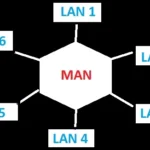Earthing is kinda a protective measure that is useful in many electrical systems where it is used to prevent people from getting an electric shock, you know? It is done by simply connecting the electrical systems to the ground using the wire. That’s all! This will enable any excess or faulty electricity that is present in the system to pass directly into the earth hence causing no harm to people or destruction of appliances. All in all, you can think of earthing as a way of “grounding” electricity, which is a procedure for ensuring that dangerous electrical currents are conducted away from you and your house towards the ground. Now let’s explore about the pros and cons of earthing:

Advantages of Earthing
1. Keeps Electrical Overloads in Check
You see, when a household electrical system experiences high power levels, and sudden surges, either from lightning strikes or faults, through earthing, all of this excess power is directed to the ground, which is a safe place for it. As a result, fires can be avoided, the devices will not be damaged, and if it happens, the most dangerous situation of a person getting hurt is also at the bare minimum.
2. No More Power Interruptions
One of the most significant advantages of earthing is that it makes your electrical system more stable. How exactly? Well, it saves the environment by not feeding into the circuit unnecessarily and keeps the circuit safe for you. Therefore, it gets fewer interruptions and is a steady and good power source that allows you to keep on using your power tools, gadgets, devices, and appliances.
3. System and Equipment Fault Protection
Besides that, the most important thing that earthing does is the protection of the electronic devices in the area through an efficient earthing system. You see, when there is an electrical fault in the device, for instance, a short circuit, the current will flow via the earthing equipment directly into the ground. The result is that neither the circuit nor the equipment will be damaged nor the more complicated problems in the power management system will occur down the line.
4. Shields Your Home from Lightning Strikes
See, when there is a lightning storm, there is a high likelihood that lightning will damage your house or electrical devices. Well, the good news is that the right earthing, when done, directs lightning away from your house and to the ground safely. It significantly reduces the risk of either the house’s structure being injured or the electrical equipment inside it being damaged.
5. Keeps Voltage Levels in Check
Did you know that in many parts of the world, it is advised to install an earthing system in every household to keep the voltage levels steady? Like, sometimes it happens that the voltage is too high and it can cause pretty significant damage to the wiring and overall electrical system of the house, but that thing can be very well avoided if there is an earthing system in place. All in all, earthing acts as a common reference point for all the different voltage sources in your electrical system, aids in balancing, and prevents problems, like blown circuits.
6. Simplified Ground Fault Location
In the event of any problems with your electrical system like a ground fault which is when electricity flows to the ground in an unexpected way, earthing can help you locate and fix the problem quite easily. This is because if such a fault occurs, it can easily be detected as the fault current will find its way through the earthing conductor. That’s how the electrician can promptly find out where the problem is and fix it.
7. Prevention of Injury, Damage, and Even Death
Undoubtedly, the most important benefit of earthing is its involvement in the prevention of injury, damage, and even death. How? Well, the proper earthing of equipment, as well as the provision of a safe work environment, especially when working with tension or heavy machinery, can significantly reduce the chances of electrical accidents such as shocks, and fires, as well as the burning out of equipment.
Disadvantages of Earthing
1. It Can Be Pricey
The earthing system setup, you see, requires highly skilled professionals who use specialized materials to create an interface with the ground that is especially costly. On top of that, the potential high cost of a long-term maintenance system that is regularly needed to ensure that all components will continue to work as they should.
2. Safety Risks If Done Wrong
Generally, earthing systems are put in place to enhance safety, however, when they are misconfigured or installed they can indeed be hazardous to life. A non-functioning earthing system that does not use the proper circuit relationships could, for example, trigger the electric current or heat transfer paths to the person or property, which is just the opposite of what an earthing system should do.
3. Hard to Place Line-to-Ground Fault
One of the problems with earthing is that, in some instances, it can be difficult to detect and localize a line-to-ground fault. This type of fault consists of the abnormal electrical pathway between current-carrying conductors and the ground, with parts of systems in between, causing a ground fault current.
4. Can Mess with Other Safety Devices
In order for earthing to function as it was intended to, it has to be a part of the whole electrical system which should be designed properly from scratch. Let’s say, if there is any error in the whole setup of the earthing system, it can very well lead to a whole lot of new problems in cases like when there is high voltage, power surges, or lightning strikes. Like, the devices, gadgets, or appliances might not work the way they were supposed to, and thus your house and appliances may become susceptible to damage during an electrical fault.
Comparison Table for Advantages and Disadvantages of Earthing
| Advantages | Disadvantages |
| Keeps your home safe from electrical surges | Can be expensive to install and maintain |
| Ensures a reliable and steady power supply | Risky if not installed correctly |
| Protects gadgets from damage | Line-to-ground faults can be tricky to find |
| Shields your home from lightning strikes | Requires proper design for effectiveness |
| Helps maintain stable voltage levels | |
| Makes fault-finding easier | |
| Reduces risk of injury or fire |

